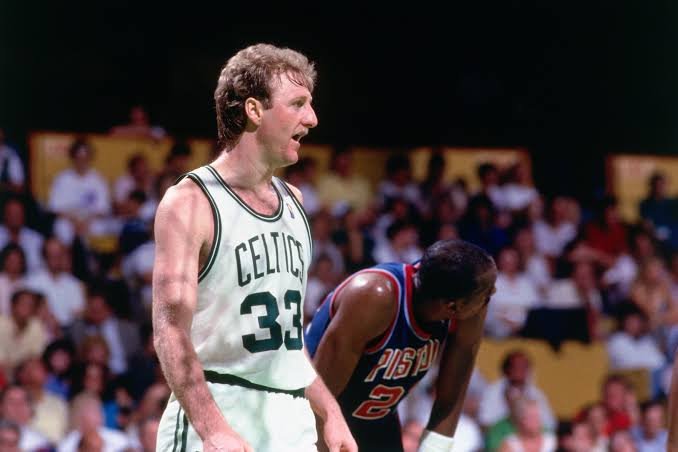Larry Bird’s “Trash Talk” Can Actually Make Players Lose Focus, a UConn researcher finds
Larry Bird’s “Trash Talk” Can Actually Make Players Lose Focus, a UConn researcher finds.

A doctoral student’s study of 200 individuals verified that competitors’ performance in a game can be adversely affected by trash talk.
Eight all-stars were chosen to compete in the first-ever three-point shooting competition, which took place during the 1986 NBA All-Star game in Dallas. “Which one of you guys is going to finish second?” said the notorious trash talker Larry Bird of the Boston Celtics as he entered the locker room as a competitor. That evening, he emerged victorious in the game and concluded the campaign as the league’s top three-point shooter, converting 42.3 percent of his shots.
Trash talk is used in competition to divert an opponent’s attention and impair their performance by inflating emotions to the point of distraction. However, not much research has been done to find out if trash talk has an impact on competitors’ performance.
Sports are mostly mental activities, despite the perception that they are primarily physical ones, according to Karen C.P. McDermott, Ph.D., whose recent doctoral dissertation in communications is among the first to quantitatively demonstrate the precise consequences of trash talk on competitive performance.
“A lot of coaches will encourage you to ‘get your mind in the game,’ because mental toughness and concentration are crucial, particularly in sports involving hand-eye coordination. Athletes must always play defense against the mental component and trash talk, which is another offensive tactic.
Trash talk has always been a part of competitive sports, from professional arenas to neighborhood playgrounds. It can be seen in everything from baseball catchers jawing at batters waiting for fast balls to Muhammad Ali’s exaggerated bragging and taunting toward his opponents in the boxing ring to NFL linebackers taunting runners just tackled and NBA players exchanging rude remarks after a thunderous dunk.
Using the racing video game competition “Mario Kart” as the test model, McDermott’s study, “Emotional manipulation and cognitive distraction as strategy: The effects of verbal insults on motivation and performance in a competitive setting,” found that trash talk can indeed have a negative impact on a competitor’s performance in the game.
200 men and women, ages 18 to 35, competed in the game under controlled circumstances; some did not receive vocally abusive taunts during their match.
She claims that while watching the video game competition, she noticed both auditory and cognitive distraction, but that it was the latter that was having an impact on the contestants’ drive to succeed and their capacity to concentrate. She also discovered that the gamers were experiencing guilt and rage.
“Originally, I thought that shame and anger were two opposing emotions, that people would strongly experience one or the other, and that feeling angry would motivate you more,” McDermott explains. In actuality, I discovered a connection between shame and rage. People tended to feel both, rather than just one or the other. In numerous instances, individuals had heightened feelings of humiliation, which in turn incited anger. Their performance suffered as a result. I wasn’t prepared for that.
McDermott, a former high school volleyball player who participated in leagues and tournaments on a regular basis, claims there is little research on the causes of trash talk and how it impacts its intended target.
Because “trash talk” is a colloquial term rather than a scientific one, she did not uncover any prior research when she started looking into it and the research that had been done on it.
“You have to identify the terms that people are actually using, such as ‘competitive incivility,’ which is a polite term,” she advises. “Yet, not even with some of the more polite terminology could I discover many research on the subject. Not until I began my research in 2018 did I discover that more scholars were publishing on trash talk.
Sports psychology, she points out, is utilized to help players excel, but it focuses more on self-actualization—that is, imagining a successful outcome in competition—than on verbal assault preparation.
You don’t do defensive mental drills, but we train defensive skills all the time on the floor, according to McDermott. “I believe that in part because there hasn’t been enough research done on trash talk to be able to develop a counterargument. One of the first studies I conducted aimed to map out the cognitive and emotional processes that individual will genuinely experience when they are the object of trash talk.
According to McDermott, the study offers a starting point for a more thorough and comprehensive investigation of the psychological and emotional impacts of trash talk as a component in a competitive environment.




Post Comment